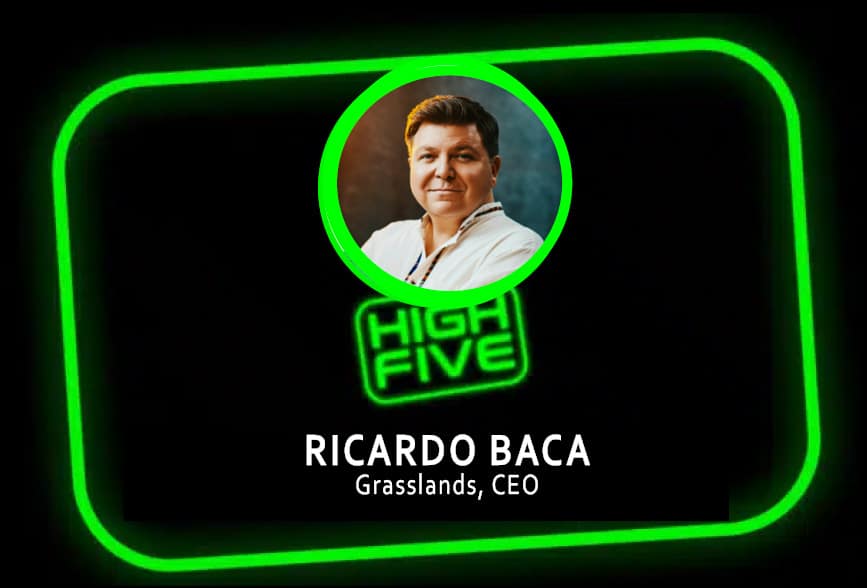


What’s the biggest challenge facing the cannabis industry right now, and how are you and/or your company addressing it?
As I think about the countless challenges the industry faces every day, nearly all of them ladder up to the federal government continuing to shirk its responsibility to legalize and regulate cannabis, hemp and everything in between. As the world’s first mainstream cannabis editor (during my Denver Post Marijuana Editor days from 2013-2016), I quickly realized that most of my journalism around those first adult-use cannabis markets in Colorado, Washington, California and beyond often centered on “the state-versus-federal conflicts” that prevented this industry from behaving like every other industry. I would often interview regulators at USDA, IRS, FDA, DEA, EPA and DOJ who would tell me their “hands are tied,” which meant that the responsibilities they typically handle for other industries were being passed onto state, county and city regulators who had little if no experience in those specific areas—and more than a decade later, that’s still where this conversation lives. With taxes, pesticide use, health standards, criminal justice concerns and so much more, the feds are still failing American citizens every day by ignoring this fast-growing movement-turned-industry—along with the countless health, justice and economic consequences that remain in absence of federal legality, let alone guidance. I’m looking forward to the rescheduling hearings in December, and while I’ll celebrate Schedule 3 as the historic progress it could be, we need to see the federal government own up to its responsibilities. Legalize all cannabis and hemp federally, now. At Grasslands, we work with a number of the largest cannabis brands, trade associations and nonprofits with the shared goal to end federal cannabis prohibition. When you think about how cannabis was first legalized medically in California, it all happened via people sharing their stories—which connected with the voting public’s hearts and minds, which created and really drove this rare policy reform. Our PR and marketing agency’s tagline says it all: “We tell stories, build brands and amplify value.” The work we do at Grasslands, for our clients and on behalf of our own purpose-driven business, tells stories to targeted audiences at scale—and I can confidently say that I will be working toward progressive drug policy reform for the rest of my life.

Where do you see the most exciting opportunity for growth and innovation in cannabis?
This industry is built on innovation, with activists and advocates decades ago refusing to accept the ruling misinformation of the time and successfully demanding legal access to this multifaceted plant. So I’d argue that the most exciting opportunities for growth and innovation are rooted in the likely federal regulatory shifts ahead; As cannabis is (hopefully) rescheduled in the coming months, this move will trigger a number of opportunities for pioneers and other visionaries to seize the moment and stake a new direction, given this newfound flexibility. Product manufacturers might capitalize on this opportunity to lean into the health standards and manufacturing certifications that inevitably await them on the other side of federal legality, which would be a boon for consumers and industry. Plant-touching businesses of all types will (ideally) finally be able to pay normal tax rates like every other business—while ditching the anticompetitive reality of 280E. Marketers like myself will also be able to create new rules and standards for how cannabis businesses of all types (including B2B businesses) can connect with and market to their most pressing audiences. While nobody is certain of what awaits us in a hypothetical Schedule 3 environment, I am certain that there will be monumental opportunities for bold industry leaders to grow and innovate under this new reality.

What’s one piece of advice you would give to someone looking to break into the cannabis industry?
Follow your actual passion. The modern cannabis industry, here on the precipice of what will be a challenging 2025, is not for the casually connected—rather, it’s for those who are deeply passionate about this plant and its mammoth potential. I’ve seen many colleagues burn out and turn to other industries, and most of them weren’t dedicated to the cause. But those of us who have a personal passion for legalizing plants and drugs that should have never been criminalized to begin with are still here, and we’re not going anywhere. That said, the cannabis industry in these infant days is not for everyone, so do your due diligence.

What is the most important thing you have learned from your experiences in the cannabis industry?
In journalism school, you learn that skepticism doesn’t have a pejorative connotation. i.e., we should all be skeptical—as it makes for healthier individuals, industries and communities. I’ve lived this way since journalism school, but working in and around cannabis reminded me to apply that healthy skepticism to my pre-collegiate life as well. As I say in my first Ted Talk, most Americans of a certain age need to reset their brains when it comes to cannabis—because most of what we’ve learned about weed is wrong. I’ll always remember those first few days on the Cannabis Editor beat at The Post: I’d not given much thought to the war on drugs before that, but in my first week of research and source-building I quickly realized that everything I’d been taught about weed was flat-out wrong. And it forced me to look inward and ask, “Why did I believe my teachers and presidents when they told me that weed was bad? And what else have they been lying to me about?” Skepticism is healthy, and I’d encourage everyone to apply that thinking to their lives.
success.

What do you want your legacy to be as it relates to the cannabis industry?
I hope to be remembered as a passionate and committed human being who forever changed the way journalists (and the media in general) discussed cannabis and other substances, similar to what the Brookings Institution wrote about my work in 2015.
Do you have a comment for Ricardo?